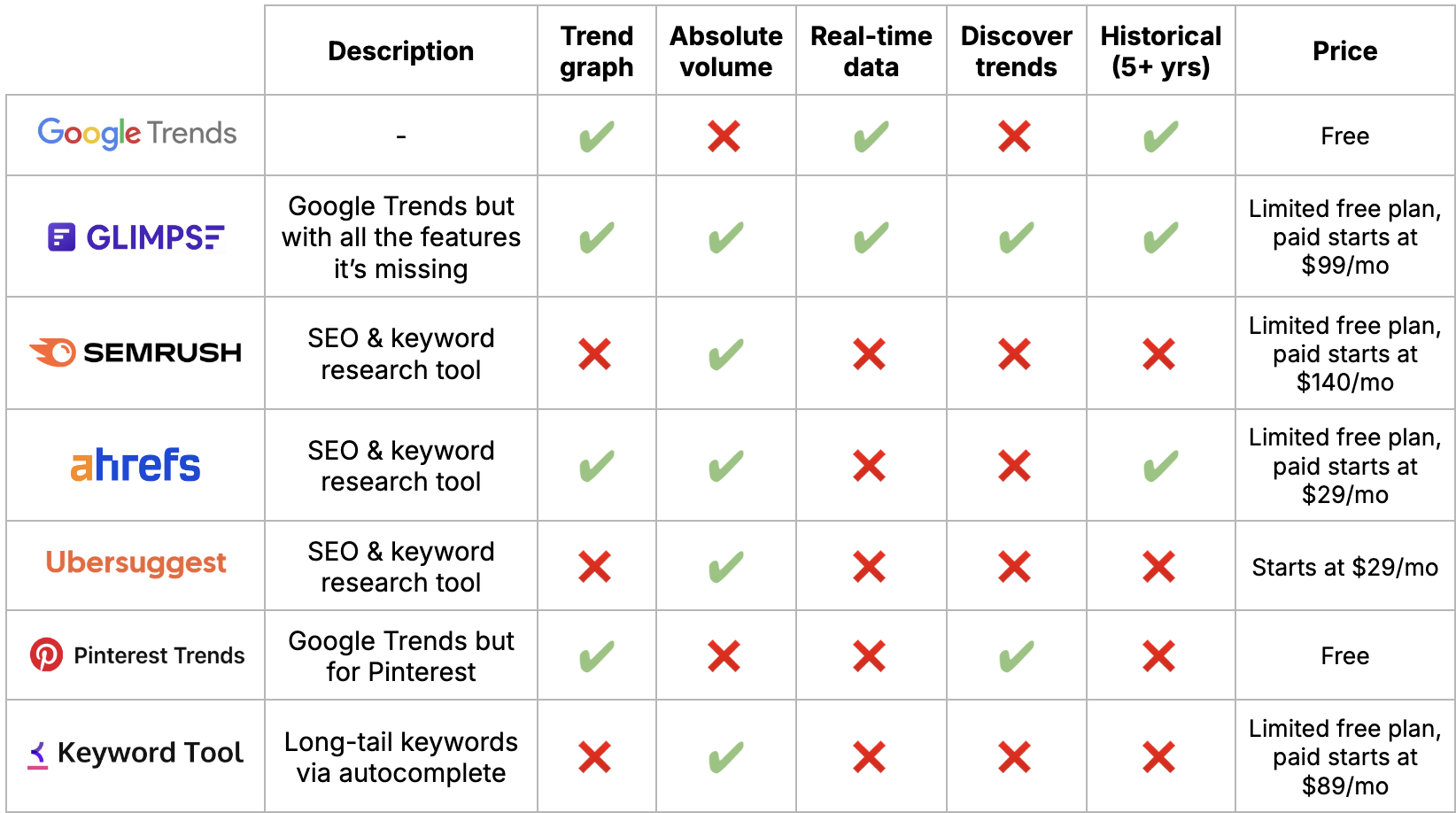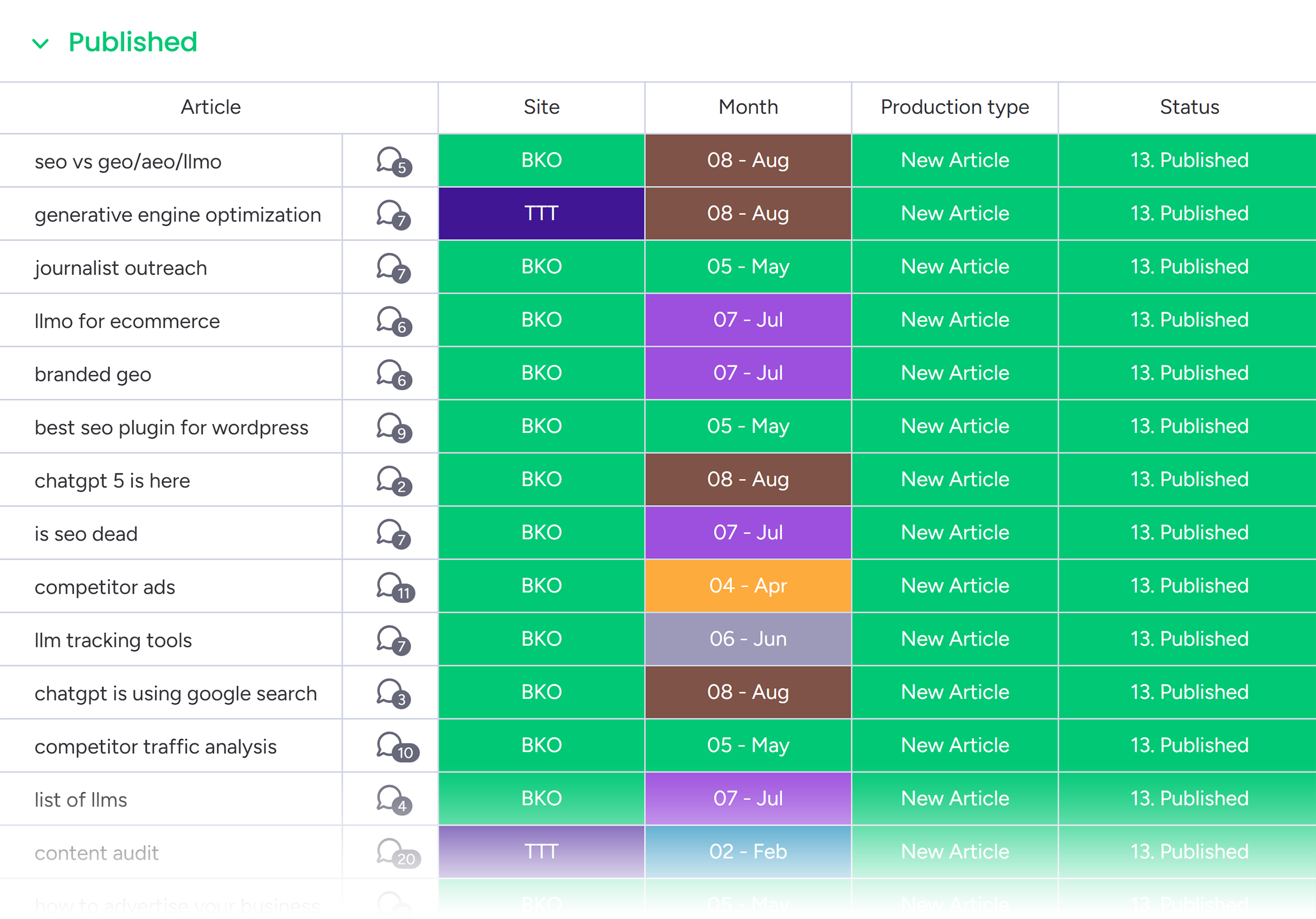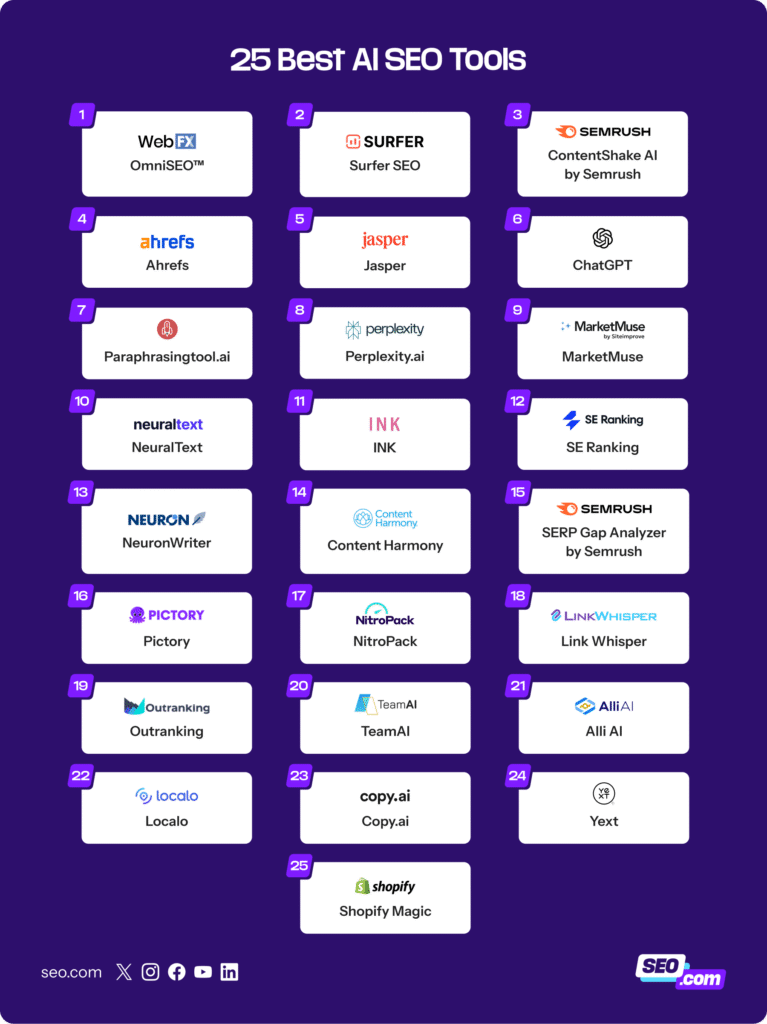Looking to boost your website’s visibility but not sure which SEO tools to trust? You’re in the right place.
Choosing the right SEO tool can feel overwhelming, with so many options promising amazing results. But what if you could see a clear comparison that highlights the strengths and weaknesses of each? This guide will help you cut through the noise and find the perfect tool to match your needs.
Keep reading to discover how the right choice can save you time, improve your rankings, and grow your online presence faster than you thought possible.
Top Seo Tools In 2024
SEO tools help businesses improve their website ranking on search engines. The right tool makes a big difference in managing keywords, tracking traffic, and analyzing competitors. In 2024, many SEO tools offer new features and better performance. Choosing the best one depends on your needs and budget.
Popular Choices
Many marketers trust tools like Ahrefs, SEMrush, and Moz. These tools provide detailed keyword research and backlink analysis. They also offer easy-to-understand reports to guide your SEO strategy. Their user-friendly interfaces make them suitable for beginners and experts.
Google Search Console remains essential for monitoring website health. It gives direct insights from Google about your site’s performance. Combining it with other tools creates a strong SEO toolkit.
New Entrants
New SEO tools are emerging with fresh ideas and advanced technology. Some focus on AI-driven keyword suggestions and content optimization. Others provide real-time competitor analysis and faster site audits.
These newcomers often offer affordable plans for small businesses. Trying out new tools can provide unique advantages not found in older platforms. Keep an eye on these rising options to stay ahead in SEO.
Key Features To Consider
Choosing the right SEO tool means focusing on key features. These features help improve website traffic and search rankings. Understanding what each feature offers makes your choice easier. Some features are essential for any SEO strategy.
Keyword Research
Keyword research finds the best words your audience searches for. Good tools show search volume and competition levels. They suggest related keywords to expand your content ideas. This helps attract more visitors interested in your topic.
Backlink Analysis
Backlink analysis checks who links to your site and competitors. It shows the quality and quantity of backlinks. Strong backlinks boost your site’s authority and ranking. This feature helps find new link opportunities and remove harmful links.
Site Audits
Site audits scan your website for SEO problems. They identify errors like broken links, slow pages, and missing tags. Fixing these issues improves user experience and search engine ranking. Regular audits keep your site healthy and optimized.
Rank Tracking
Rank tracking shows how your keywords perform in search results. It tracks daily or weekly changes in position. This helps measure SEO efforts and spot trends early. You can adjust your strategy based on real data.
Competitor Analysis
Competitor analysis reveals what works for your rivals. It shows their top keywords, backlinks, and traffic sources. Knowing this helps you find gaps and new opportunities. It keeps you ahead in the competitive SEO landscape.
Pricing And Plans
Choosing the right SEO tool depends a lot on pricing and available plans. Every tool offers different options. Some provide free versions, while others require a paid subscription. Understanding these differences helps make the best choice for your needs and budget.
Free Vs Paid Versions
Free versions allow basic features and limited usage. They are good for beginners or small projects. Paid versions offer full features and more data access. These suits professionals or larger websites. Free tools may show ads or limit reports. Paid tools remove these limits and add support.
Subscription Models
Most SEO tools use monthly or yearly subscriptions. Monthly plans offer flexibility and no long-term commitment. Yearly plans usually cost less per month. Some tools also have tiered plans. Each tier gives more features and higher limits. Choose a model that fits your work style and budget.
Value For Money
Check what features you really need. A higher price does not always mean better value. Compare features like keyword tracking, site audits, and competitor analysis. Consider how much time the tool saves you. A tool that speeds up work can justify a higher cost. Balance cost with benefits for the best choice.
Ease Of Use And Interface
Choosing the right SEO tool depends heavily on how easy it is to use. A clean, simple interface saves time and reduces frustration. Users should quickly find features without confusion. The design must feel natural and guide users well. This section looks at the ease of use and interface of popular SEO tools.
User Experience
Good user experience means the tool works smoothly. Menus and options should be clear and well-organized. A cluttered screen makes tasks harder. The best tools let users focus on their work, not on figuring out the tool. Fast loading times and responsive design add to comfort.
Learning Curve
Some SEO tools are easy for beginners. Others require time to understand all features. A low learning curve means users can start right away. Tutorials and simple guides help new users. Tools that use plain language avoid confusion. Complex tools can slow down progress.
Customer Support
Good customer support helps solve problems fast. Support may include chat, email, or phone options. Quick responses reduce downtime and frustration. Clear instructions and helpful answers make a big difference. Some tools offer live help, which many users prefer.
Integrations And Compatibility
Integrations and compatibility play a key role in choosing the right SEO tool. These features help tools work well with other software you use. They save time and make your workflow smoother. Good integrations let you gather data from different sources in one place. Compatibility ensures the tool fits your system and needs.
Third-party Tools
SEO tools that connect with third-party software offer great flexibility. Popular tools link with Google Analytics, Google Search Console, and social media platforms. These connections let you see all important data together. It helps to analyze your website’s performance more clearly. The more third-party tools an SEO tool supports, the better for your work.
Browser Extensions
Browser extensions add extra power to SEO tools. They allow quick checks without opening the main software. You can see SEO data while visiting any webpage. Extensions help spot issues fast and save effort. Most top SEO tools have their own browser extensions. They work on Chrome, Firefox, and other browsers.
Api Access
API access lets you connect SEO tools with custom apps. It suits businesses that need special reports or automation. With APIs, you pull data directly into your systems. This reduces manual work and errors. Not all SEO tools offer API access. Choose one that fits your technical needs and budget.

Credit: meetglimpse.com
Performance And Accuracy
Performance and accuracy are key factors in choosing the best SEO tool. These qualities affect how well you track your website’s progress. Accurate data helps you make smart decisions. Fast tools save time and avoid frustration. Each tool varies in how fresh, accurate, and reliable its data is. Understanding these differences helps you pick the right one.
Data Freshness
SEO tools rely on up-to-date data to show real results. Some tools update their data daily, while others do it weekly or monthly. Fresh data gives a clear picture of your current rankings and traffic. Old data can lead to wrong conclusions and slow reactions. Choose tools that provide regular updates to stay ahead in SEO.
Reporting Accuracy
Accurate reports reflect true website performance. Errors in data can mislead your strategy. Some tools track keywords and backlinks more precisely than others. Check if a tool matches real search engine results. Accurate reporting helps you focus on what really works and avoid wasted efforts.
Speed And Reliability
Speed matters when running SEO reports. Slow tools can delay your work and cause frustration. Reliable tools run smoothly without crashes or errors. They handle large websites and many keywords without issues. Fast and stable tools keep your SEO tasks efficient and stress-free.
Case Studies And User Reviews
Case studies and user reviews provide real insights about SEO tools. They show how these tools work in actual projects. Users share their experiences, both good and bad. This helps others decide which tool fits their needs best.
Success Stories
Many businesses have improved their search rankings using SEO tools. One company increased organic traffic by 50% in six months. They credited keyword research and backlink analysis features. Another user boosted site speed, leading to better user engagement.
Success stories often highlight easy-to-use interfaces and helpful reports. Users appreciate tools that simplify complex SEO tasks. They mention improved content strategies and better competition analysis. These wins show the practical benefits of choosing the right tool.
Common Complaints
Some users find certain SEO tools too expensive for small budgets. Others report a steep learning curve during the first few weeks. Technical glitches and slow customer support appear in multiple reviews. These issues can slow down progress and cause frustration.
Many complain about limited data in free versions. Some tools lack features needed for advanced SEO work. Frequent updates sometimes cause confusion rather than clarity. These points reveal areas where tools still need improvement.

Credit: backlinko.com
Choosing The Right Seo Tool
Choosing the right SEO tool can make a big difference in your online success. Each tool offers unique features and fits different needs. Picking the best one helps save time and gets better results. Understanding your specific situation is key to finding the perfect match.
Based On Business Size
Small businesses need simple and affordable tools. These tools focus on basic SEO tasks like keyword research and site audits. They offer easy reports and clear instructions.
Medium-sized businesses require more features. They benefit from tools that track competitors and analyze backlinks. These tools support growth and deeper insights.
Large companies need advanced tools with full analytics. They handle big websites and large data sets. These tools provide detailed reports and team collaboration options.
For Different Seo Goals
For keyword research, choose tools with large databases. They help find words your audience uses. Good keyword tools also show competition and search volume.
If your goal is link building, use tools that identify quality backlinks. These help find new link opportunities and track existing ones. They improve your site’s authority.
For on-page SEO, pick tools that analyze content and site structure. They suggest improvements for titles, headings, and meta tags. These tools help improve rankings and user experience.

Credit: digitalmarketacademy.in
Frequently Asked Questions
What Are The Best Seo Tools For Beginners?
Best SEO tools for beginners include Ahrefs, SEMrush, and Moz. These tools offer user-friendly interfaces and essential features like keyword research, site audits, and backlink analysis. They help beginners understand SEO basics and improve website rankings efficiently.
How Do Seo Tools Improve Website Ranking?
SEO tools analyze keywords, backlinks, and site performance to optimize content. They identify issues, suggest improvements, and track rankings. Using these insights helps increase organic traffic and improve search engine rankings effectively.
Which Seo Tool Offers The Most Accurate Keyword Data?
Ahrefs and SEMrush provide highly accurate keyword data. They use extensive databases and real-time updates. These tools offer detailed keyword difficulty, volume, and competition metrics for better SEO strategy planning.
Can Seo Tools Help With Competitor Analysis?
Yes, SEO tools like SEMrush and SpyFu excel in competitor analysis. They reveal competitors’ keywords, backlinks, and traffic sources. This data helps create strategies to outperform competitors and capture more market share.
Conclusion
Choosing the right SEO tool depends on your needs and budget. Some tools offer simple features, while others provide detailed data. Think about what matters most for your website. Test a few tools before making a decision. Good SEO tools help improve your site’s visibility and traffic.
Keep learning and adapting as SEO trends change. The right tool makes SEO easier and more effective. Start small, and grow your SEO skills over time.
